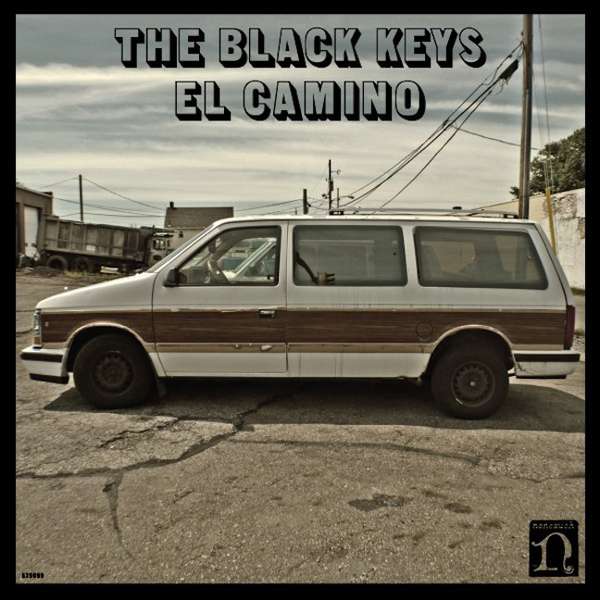By now, the Black Keys have released enough material to seemingly exist since the early nineties. This is not the case, however, only having released their gritty debut, The Big Come Up, in May 2002. Since then, amidst a steady growth in production efforts and more polished recordings, The Black Keys manage to stay true to their simplistic form.
Where the former release, 2010’s Brothers, exposed the world to a band comfortable with the nuances of classic blues and soul, El Camino an entire devotion to rock and roll. This is a straightforward record consisting of fast paced, hook driven tunes that ring with the delightful pop sensibility and swing of early rhythm and blues. The reuniting of the Keys (guitarist and vocalist Dan Auerbach and drummer Patrick Carney) with Brian Burton (a.k.a. Danger Mouse) lends to this fleeting direction.
“Gold on the Ceiling”, El Camino’s third and perhaps most catchy track, dances through a chugging riff supported by organ flairs, hand claps and accompanied by heavy vocal harmonies. Burton’s input is reflected in the rhythmic keyboard melodies shadowing Auerbach’s gigantic arrangements. He literally makes for a keys member, pun intended. Burton is credited as not only co-producing, but co-writing all eleven tracks as well.
On how the two came about swiftly crafting such an upbeat collection of songs, Carney related it to “…the fact that it's easier for our songs to come across well live if they are fast.” Hence why only one track clocks in at over the three-minute mark. Track four, “ Little Black Submarines”, begins with a yearning acoustic guitar and Auerbach crooning, “Oh, can it be/ The voices calling me? / They get lost and out of time.” This is perhaps the most low key track, right up until the bridge breaks through and stomps on what could have been considered “The Lengths” of El Camino.
For what it’s worth, The Black Keys may not have necessarily broke any barriers, setting big expectations following three Grammy Awards for Brothers. What they did do, however, is craft another solid addition to their already noteworthy and extensive catalogue. Lead single and album opener “Lonely Boy” sets the tone for the aged vibes, like the beater van shown on the cover, but drives like that of a, say, Chevrolet El Camino might. And really, it seems, a coupe is all the room these guys need.





